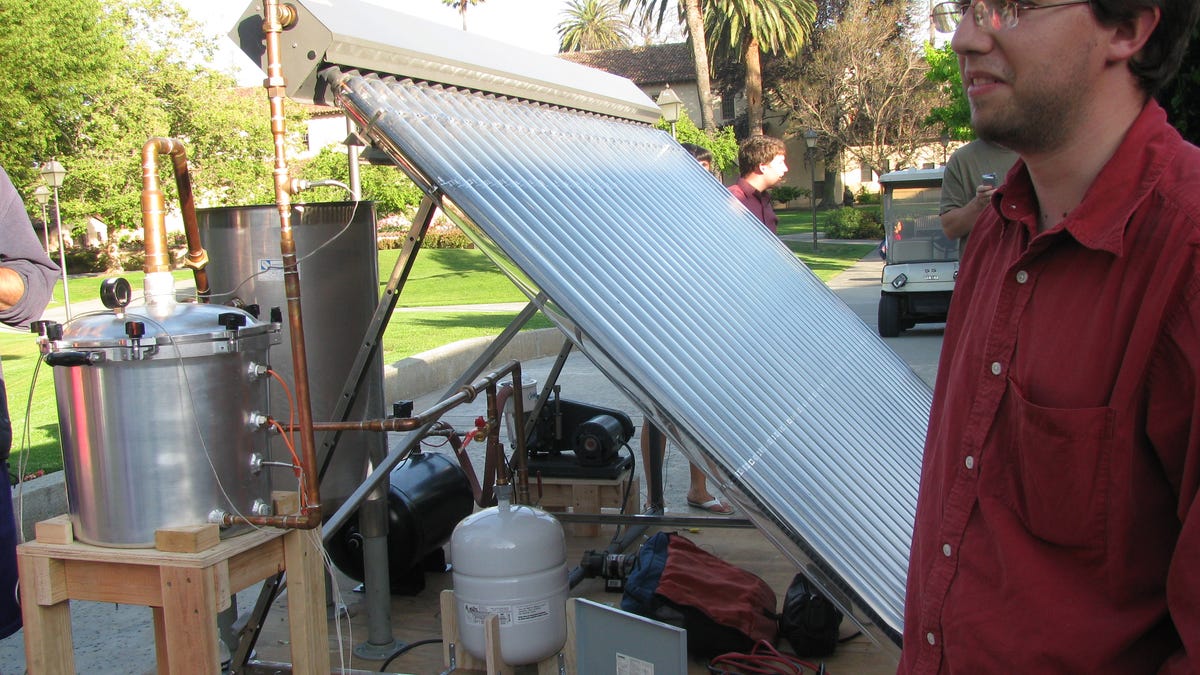Clean tech promising but tricky in the developing world
Competition highlights special hurdles faced by start-ups attempting to provide clean technologies for people in developing nations.

SANTA CLARA, Calif.--Bringing clean technologies to the developing world may not be the top priority for Silicon Valley deal makers, but interest is expanding, according to entrepreneurs, scientists, and venture capitalists meeting Tuesday at Santa Clara University.
An event backed by the California Clean Tech Open "start-up in a box" competition and the university chapter of Engineers Without Borders encouraged students to address problems shared by the world's poorest people.
As tech heavy hitters such as Microsoft founder Bill Gates throw their weight behind "creative capitalism," similar interest appears to be growing among small companies focused on sustainability.
California Clean Tech Open program director Brian Payer said he and others considered adding a category for projects for the developing world. He and judging chair Rebeca Hwang noted that they are seeing more start-ups with proposals to serve the world's poor.
However, good intentions won't get far if entrepreneurial hopefuls fail to maintain humility and respect local ingenuity, warned Ashok Gadgil, a senior scientist at Lawrence Berkeley Labs. He invented the portable UV Waterworks purifier, which the lab licensed to Water Health International.
And figuring out the right business model is tricky because people at the bottom of the economic pyramid don't necessarily want handouts, but they can't pay high upfront fees either. Gadgil praised Solar Electric Lighting Company, or SELCO, in India, because its novel financing model requests small monthly payments for its solar-powered lights.
Getting cooperation from local people in power is also key, said BuildFast President Patrick Freeburger. His plans to sell eco-friendly house kits that could be built in a day to last 100 years got a boost from the mayor where the first project will launch in Mexico, he said.
Although engineers are abundant in some developing countries, clean-tech companies abroad have a hard time finding skilled leaders and managers, said some entrepreneurs.
Providing safe drinking water brings particular challenges, agreed many at the event. One-fifth of the world's people lack access to safe water, a threat set to spread in the coming decades to populations of all income levels due to the effects of climate change, according to the United Nations.
"Clean water is important. Clean air is important. But it means nothing to you if you can't get food and shelter," said John Rockwell, managing director of venture capital firm Element Partners, which has poured more than $300 million into clean-tech companies. Many people will choose pollution and a job over no pollution and no job, he added.
Solar energy start-ups may be hot, but water services remain overlooked in clean tech, according to many industry observers. The Cleantech Group has pegged water technologies as a major future area of growth.
Santa Clara's engineering undergraduate students showed off projects aimed to improve access to clean water in villages abroad.
One team built a model distiller that would use heat from the sun to boil water, killing microbes in up to 22 liters each day, three times the amount of most solar stills. The students hope to test and perhaps eventually bring the creation to Karheda, India, a 2,500-person village in India with 52 wells of lead-contaminated, saline water.
Another student team used software modeling to create a system that would pipe spring water to crops in a Nicaraguan village.
The California Clean Tech Open has helped launch companies including BuildFast and GreenVolts. Its categories cover air, water, and waste; energy efficiency; green building; renewable energy; smart power; and transportation. Each of the six winning companies receives $50,000 cash and support such as office space and marketing services.
Applications for the 2008 California Clean Tech Open are due June 14.